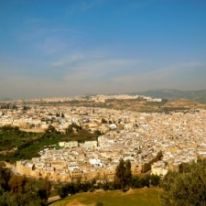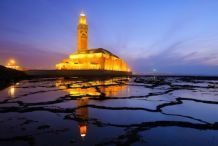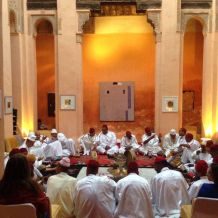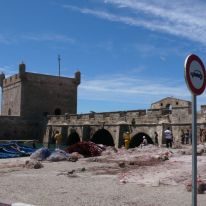Bead your Way Through Morocco is a Moroccan Jewelry & Trade Bead Treasure Hunting Tour created by Travel Exploration Morocco and hosted by Sarah Corbett, a Tribal Jewelry Expert. Travel Exploration Morocco is a Ouarzazate based Travel Agency and the first to offer this customized Moroccan Jewelry & Trade Bead Tour to Morocco with a Tribal Jewelry Expert.
Bead Your Way Through Morocco, Travel Exploration’s new quarterly Moroccan Jewelry & Bead Treasure Hunting Tour will launch it’s first Morocco travel itinerary on April 26th – May 9th, 2010. Bead Your Way Through Morocco will take Moroccan antique, trade bead enthusiasts and Moroccan jewelry collectors through a variety of Southern Moroccan cities, (Ait Ouzzine, Agdz, Tarodaunt, Tiznit) Saharan Desert Towns, (Zagora, M’hamid) the Seaside city of Essaouira and the Imperial city of Marrakech.
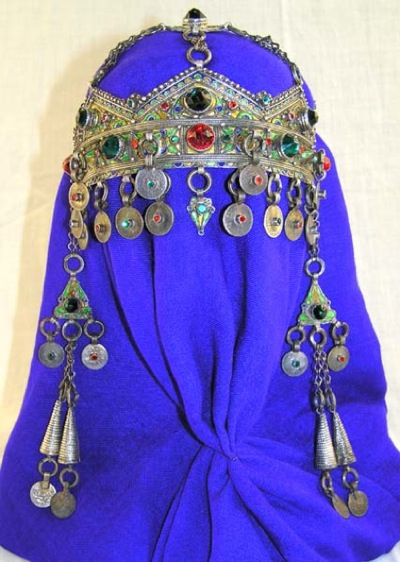
Travel Exploration Morocco has teamed up with Tribal Jewelry expert Sarah Corbett to offer an exciting and enthralling Moroccan Jewelry and Bead Treasure Hunting Tour to the Maghreb. This 14 Day/ 13 Night Moroccan Jewelry & Bead Tour will enable Moroccan jewelry and bead enthusiasts to explore Morocco’s hidden treasures with a focus on antique Moroccan silver and trade beads.
At the lead of Travel Exploration’s Bead Your Way Through Morocco Tour is Sarah Corbett, a Tribal Jewelry Expert who has focused her research, documentation and exploration on ethnic and tribal adornment from North Africa and the Sahara region for the past ten years. Corbett takes immense pride in sourcing and selecting antique tribal pieces for Museums and collectors worldwide. Corbett also makes some of these pieces (Moroccan Jewelry, Antique Silver Fibulas, Moroccan Hamsas, Trade Beads, Antique Beads) available to a wider audience through Vivid Trading.com.
Bead enthusiasts and jewelry collectors who attend the Bead Your Way Through Morocco Tour will be able to participate in a bead-making workshop in Morocco and have several viewings and purchasing opportunities of antique tribal beads and trade beads.
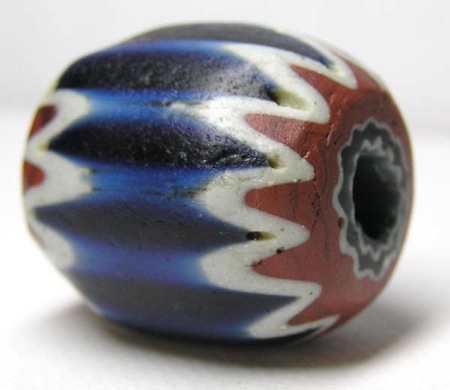
Bead enthusiasts and jewelry collectors who attend the Bead Your Way Through Morocco Tour will be shown a variety of renowned beads of antiquity such as Moroccan Amber, Moroccan Coral, Moroccan Copal, Moroccan Berber & Tuareg Silver and Venetian Beads (Trade Beads) at private viewings. These Moroccan jewelry treasures will be shown to guests by some of Morocco’s Tuareg and Berber traders who have their pulse on the most valued antique beads, trade beads and silver jewelry in Morocco alongside unique jewelry that passes through the North Africa region.
This 14 Day/ 13 Night Jewelry Treasure Hunting Tour to Morocco will also include a visit to the Bouthgrars’ Valley of Nomads, the Dades Valley region, a sunset camel trek to the M’hamid Sahara Desert Dunes, a visit to Amzrou, Zagora’s Jewish Mellah, known for it ancient silver making traditions and Taradount, often referred to as the mini- Marrakech whose orange ramparts surround its quiet people live tucked beneath the Souss Valley.
The trip will commence with a visit to Essaouira by the sea, where Moroccan Jewelry collectors and bead enthusiasts who have attended the tour can relax by the beach while still squeezing in one last viewing from a private Moroccan jewelry trader in the heart of old Mogador.
Travel Exploration Morocco’s Tour Host, Sarah Corbett actively participates in world bead studies, to record and preserve the knowledge of these amazing art forms, their creation and evolution. Recently Sarah has become involved in the translation of the works of Mr. Bert Flint the founder of the Tiskiwin Museum in Marrakech. As a result of Corbett’s connection, the Bead Your Way Through Morocco Tour will also include a one-hour private lecture at the Tiskiwin Museum with viewings of priceless pieces.

Bead Your Way Through Morocco is the perfect tour for Morocco travel adventurers who are also Moroccan jewelry and bead collectors who wish to see Morocco’s cultural and historical sites while treasure hunting in the Maghreb. Bead Your Way Through Morocco is definitely worth adding to your Morocco vacation or Morocco travel holiday plan.
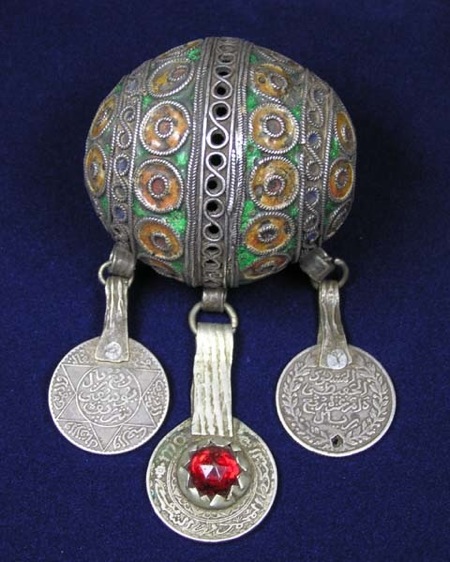
DAY 1: CASABALNCA – MARRAKECH
►Flight Arrival at Casablanca’s International Airport.
►Have breakfast and then visit the Mosque of Hassan II. Casablanca is home to the Hassan II Mosque, designed by the French architect Michel Pinseau. It is situated on a promontory looking out to the Atlantic, which can be seen through a gigantic glass floor with room for 25,000 worshippers. Its minaret is the world’s tallest at 210 meters. It is an enormous architectural masterpiece and the second largest religious building in the world. On Fridays, the Mosque of Hassan II is open to non-Muslims. The Mosque of Hassan II’s promontory offers lovely views overlooking Casa in the residential Afna quarter.
►After visiting the Hassan II Mosque, take the road to Marrakech. Arrive in Marrakech in the afternoon, check into your Riad. Relax and unwind, then visit Djemma El Fna Square.
►Welcome dinner at Le Marrakech’s which is filled with beautiful, old Zellij tile and has a view of Djemma El Fna Square.
►Spend the night at 4 Star Traditional Moroccan Riad in Marrakech.
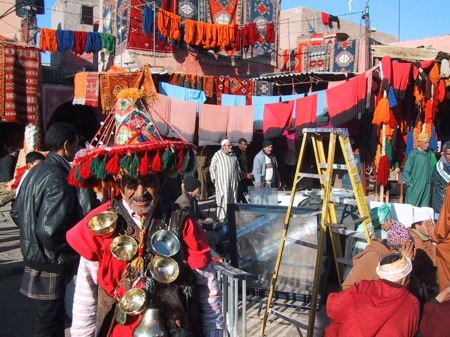
DAY 2: –MARRAKECH (GUIDED HISTORICAL TOUR)
►Breakfast at your Riad. Begin your one-day Historical Tour of Marrakech.
►Your introduction to Marrakech will begin in the new city, we will navigate our way to French, Gueliz and head to the Majorelle Gardens, a magical and lush small garden estate designed by Jacque Majorelle and maintained by Yves Saint Laurent. The Majorelle Garden is filled with colorful walkways, ponds, cactus and plants as well as a beautiful shop with hand-made goods. On our return to your hotel, we will pass by the La Mammounia Hotel Garden (where Alfred Hitchcock wrote the famous film The Birds).
►Visit the 19th Century Bahia Palace originally built for Si Moussa, a former slave who became King Moulay Hassan’s chamberlain. The palace holds a courtyard and riads decorated with and the most beautiful carved stucco, Arabic architecture. Next visit the 16th Century Saadian Tombs and El Mansour mosque. Marrakech is a city of underground channels built by the architects from Cordoba, Spain to provide water for the town and Palmary.
►Next visit the old, Medina, the old quarter of the Marrakech. From here we will explore this historically charming area by foot. In Djemma el Fna, you will visit the famous 12th century Koutouba Mosque and its influential minaret.
►Your guide will lead you through the labyrinth streets and alleys of the Djemma. Enjoy aromatic smells, taste fresh squeezed orange juice and venture into the souks specializing in Berber carpets, silver jewelry, artisan workshops, handmade shoes and tanneries. Enjoy a three- course lunch consisting of fresh salad, tajine and fruit at one of Marrakech most delectable restaurants.
►Next we will visit the Museum or Tiskiwin, a private museum dedicated to popular arts & crafts, styled as a beautiful Spanish-Moroccan house, next door to Dar Si Said palace, a smaller version of the Bahia. Visit the courtyard.
►Tiskiwin Museum Lecture: You will have a first hand viewing of the Tiskiwin and listen to a one-hour lecture and exploration of its history, be shown its private bead and jewelry collection.
►Jewelry & Treasures of Marrakech Viewing:
Late afternoon/ Evening viewing of Moroccan Jewelry pieces at your Riad by a local Tuareg Trader in Marrakech. Enjoy a private two- hour viewing of fabulous beads, jewels and local silver pieces available for purchase and historical discussion about the origin and meaning of these pieces.
► Dinner at Le Marrakechi or at your Riad.
►Spend the night at 4 Star Traditional Moroccan Riad.
DAY 3: MARRAKECH – TIZNIT (5 Hours Driving Time)
►Breakfast at your Riad in Marrakech, then take the road to Tiznit.
►Pass through Agadir and witness the Argan goats in trees nestling in to eat away at the Argan nuts which are typically used in making Argan Oil, Butter and Cosmetics.
►Stop in Agadir or in a small village for lunch, then continue the road to Tiznit. Tiznit is a town in the southern Moroccan economic region of Souss-Massa- Draa founded in 1881 by the Sultan Hassan I. It has a population of approximately 50,000. Tiznit is well known for its silver jewelry, daggers and sabres.
►Arrive in Tiznit, check into your Riad and have dinner.
►Spend the night at 4 Star Riad in Tiznit.
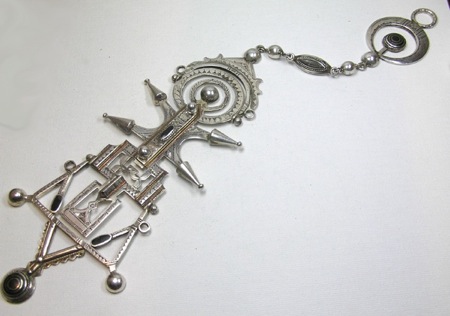
DAY 4: TIZNIT – TAROUDANT (MOROCCAN JEWELRY & SILVER TREASURE HUNTING)
►Rise, have breakfast at your Riad. Then spend half-day visiting the Jewelry Souk in the center of Tiznit and a a journey to Bab Lakhmis Ait M’hamid where you will have access to and study the variety of kinds of Southern Moroccan and Mauranitian beads and jewelry. You will also be able to make purchases there to add to your collection.
►Have lunch in Tiznit, and then take the road to Taradount.
►Arrive in Taroudant, check into your Riad.
►Dinner and Spend the night in a 4 Star Riad in Taroudaunt.
DAY 5: TAROUDANT (TRADE BEAD MAKING WORKSHOP)
►Rise, have breakfast at your Riad, and then begin your exploration of Taroudaunt.
►Taroudant is a Moroccan city located in the Souss Valley in the southern part of the country. It is situated eat from Agadir on the road to Ouarzazate and south from Marrakech. It has the feel of a small-fortified market town on some caravan route. It is also known for its local crafts like jewelry and carpets. Taroudant is often referred to as the “Grandmother of Marrakech” because it is a scaled down, slowed down town that resembles Marrakech with its surrounding ramparts. Unlike Marrakech, Taroudant contains almost the whole city within its walls.
►Visit the old medina for a two-hours, then take the road just outside Taroudant to a small workshop that produces traditional Berber beads and is the original place that makes jewelry for the Souks throughout Morocco. Spend half the day watching the actual production of beads.
►View The Trade Bead-Making Process:
View the bead-making process detail at the workshop where you can create your own jewelry from the beads that you have seen produced that day – which will be yours to keep as a souvenir of your visit. There will be access to a wide selection of beads available.
►Bead Demonstration Of Rare Bead-making Traditions:
During your workshop you will have the opportunity to witness a demo of three different styles of bead making, two of which are “rare’.” Trade Bead making enthusiasts will enjoy this demonstration, as it will enable them to view how old traditions are still be practiced, produced and carried on in Morocco. Some of these traditions include utilizing couscous and other original Moroccan traditions to create beads. This “rare” tradition will be seen and recorded for the first time during our visit.
►There will be an opportunity to also purchase beads and special silver and other Moroccan Jewelry during your Bead Making Workshop in Taroudant.
►Lunch in Taroudant. After lunch there is the option to continue Moroccan Bead and Jewelry Treasure Hunting or return to your Riad to relax for the evening.
►Dinner & Spend the night at a 4 Star Riad in Taroudant.
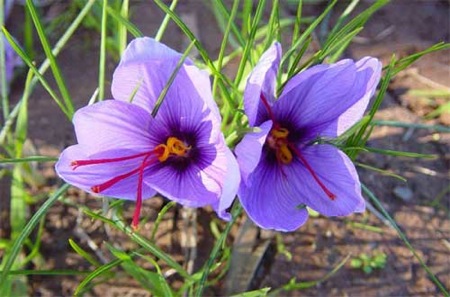
DAY 6: TAROUDAUNT – TALIOUINE – AGDZ (GUIDED HISTORICAL TOUR)
►Breakfast at your Riad. Then spend take the road to Agdz. En route to Agdz, you will stop at the Taliouine Saffron Cooperative. Taliouine is the traditional area of cultivation of saffron in Morocco and has been for hundreds of years. The Taliouine Souktana cooperative is on the road to Taroudant, in the village of Taliouine, in the heart of Sirwa Mountains. The Taliouine Cooperative sells only truly biological saffron, cultivated according the traditional ways, with natural fertilizers. The mountains dry climate is ideal for such a culture.
►After visiting the Taliouine Saffron Cooperative, continue the road to Agdz.
►Arrive in Agdz and visit a local, traditional Moroccan small store that is famous for its antique beads such as amber, coral, copal and also offers up a fantastic array of antique silver Moroccan Jewelry. After treasure hunting in Agdz, take the road by piste to Kasbah Tamnogault.
►Dinner and Spend the night just outside Agdz at the famous Tamnougalt Kasbah.
DAY 7: AGDZ – KASBAH TAMNOGAULT – ZAGORA
►Breakfast at your Riad. Take the road to visit the village of Ait Ouzzine.
►Aït Ouzzine is a Berber village inhabited by over 300 families who live in beautifully painted crenulated Kasbahs, with their own henna fields, water wells, livestock and gardens. This peaceful village is tucked away along an impressive desert route connecting the Draa Valley (Tansikht) and Rissani.
►Meet a local Berber family, partake in a cooking lesson of how to make traditional bread, couscous and a tajine.
►Then explore and tour the village by foot. Walk in the green fields and see how the traditional Berbers live with their gardens of herbs, livestock, and henna plants.
►Lunch will be served to you in Aït Ouzzine by a traditional Berber family. The menu will include a traditional meal of fresh baked bread with spices and a chicken and vegetable tajine and fresh local fruits for desert.
►After lunch, you can have your hands and feet painted with henna or your hair adorned with saffron by a local village artist and relax. Experience the tradition of Berber perfume made from musk and amber along with the villages own spices.
►End the afternoon in Ait Ouzzine with mint tea and almonds. Take the road back to Ouarzazate.
►Dinner and Spend the night at a 4 Star Riad located within a Palmary of old Zagora.
DAY 8: ZAGORA – TAMAGROUTE – AMZROU – M’HAMID
►Breakfast at your Riad in the Zagora Sahara, then begin your visit of Zagora, aSaharan desert town in the southern Draa Valley. Zagora is favored by travelers for its desert dunes, palms, 45 varieties of dates and its Hollywood sunset mountain backdrops. Take the road by piste (windy road) to discover the land where caravans once transported sugar, tea, dates and other dry goods to Ouarzazate.
►Explore the Tamegroute Pottery Cooperative:
Learn how the local, forest green, glazed pottery is made and fired using regional henna. The holy village of Tamegroute’s claim to fame through out history is the beautiful pottery created that has a glaze made of henna and is sun dried.
►You will enjoy a workshop lead by Tamagroute pottery masterswhereby you will learn how the pottery unique to this region of Zagora is made. You will learn the history as well as their local techniques. An English translator will be provided along with all necessary materials for you to make your own Tamagroute pottery. Everything you make you will be able to keep.
►Visit the ancient Zaouia site and the Koranic library. Tamegroute has a Koranic Library that once held 40,000 volumes and theological college dating from the 11th century. The library contains a collection of illuminated Korans, the oldest of which are written on gazelle skins.
The Art of Silversmiths in Amzrou:
►Next, visit the village of Amzrou and it’s old Jewish Mellah. See how silversmiths work to make hand made silver fibulas and Southern Crosses. Watch how molds are made from scratch, then how the Sahara’s sand is used to bind the molds for creating jewelry. The Jews who inhabited this village in the 1950’s taught the silver smiths in Amzrou their craft. Before the fled to Israel, they left a long history of craftsmanship along with the land to continue their silver making jewelry tradition. There will be an opportunity for bead buying, silver buying and also for purchasing of old artifacts.
►View the old Mellah’s Museum and artifacts for viewing and for purchase. Amzrou and the old city boasts a private area filled with artifacts that are of Berber, Jewish and Arabic origin.
►After exploring Amzrou, take the road to the M’hamid Sahara. Sunset camel trek into the M’hamid Sahara Dunes. Dinner at your luxury bivouac tent in the M’hamid Dunes. Spend the night in the M’hamid Sahara Desert.
DAY 9: M’HAMID – DRAA VALLEY – SKOURA
►Breakfast in the M’hamid Sahara Desert. Then take the road to Skoura.
►En route to Skoura, you will pass the magnificent Draa Valley, its Berber villages and the old routes where caravans once passed. The Draa Valley is surrounded with volcanic rock and breathtaking landscapes.
►Lunch and half-day visit of Skoura.
►Skoura is a fertile oasis lined with immense palm groves that provide great views of the Atlas Mountains alongside
deserted landscapes. It is renowned for the cultivation of roses. The palm groves were laid out in the 12th century by the Almohad sultan Yacoub el-Mansour and named after its original inhabitants, the Berbers of the Haskourene tribe. The most beautiful Kasbahs in southern Morocco can be found here. Many of them are still partially inhabited.
►The most imposing of the Kasbahs in this area that you will tour is 17th CenturyAmerhidil Kasbah. This fortified residence once belonged to the most powerful family responsible for protecting the village and its lands called the Glaoui. Today it is owned by the Sheikh of Amerhidil.
►Touring the Kasbah is a most charming opportunity as its interior is now restored. The Amerhidil Kasbah is featured on a 50.00 note of Moroccan Dirhams and on an Orange Juice box branded, Marrakesh.
►After your visit of Skoura, check into your guest house which is located at the peak of Skoura and boasts views of the majestic Skoura Palmary and its one-thousand Kasbahs. Relax by the pool. Dinner at your Guest House with cuisine made with the olive oil that is locally produced in Skoura.
►Spend the night at a 4 Star Guest House in the Skoura Palmary.
DAY 10: OUARZAZATE (GUIDED HISTORICAL TOUR)
►Rise early, breakfast at your Riad and then take the road to visit the Ouarzazateregion and its famous Kasbahs.
►“See Ouarzazate and die” are feelings often expressed by Moroccans with regards to this magical city that is the door to the Sahara Desert. Located just four hours from Marrakech, Ouarzazate is the main Berber city in the south known for its spectacular sunsets and dramatic mountain and desert scenery. Surrounded by breathtaking valleys, Ouarzazate was once crossing point for African traders seeking to reach northern cities in Morocco and Europe. During the French period, Ouarzazate expanded considerably as a garrison town and became the administrative centre of the Zagora region. Ouarzazate became famous when it’s nearby Kasbah; Ait Benhaddou appeared in the 1962 film Lawrence of Arabia.
►Take the windy road by piste visit the Oasis of Fint passing the “Plateau de pierres“. Journey on a one-hour walk inside the Oasis where you will have a cup of tea with the headmasters family Azziz Ouaziz and tour the surrounding area where date palm oases and dramatic desert scenery are king.
► Then take the road to Ait Benhaddou. Located 32 km from Ouarzazate lays the picturesque village. Aït Benhaddou of Aït Benhaddou is situated in Souss-Massa-Draa on a hill along the Ouarzazate River. Lawrence of Arabia was filmed here andOrson Welles used it as a location for Sodome and Gomorrah; and for Jesus of Nazareth the whole lower part of the village was rebuilt. In recent years more controlled restoration has been carried out under UNESCO auspices. Aït Benhaddou is one of many locations in this region used for shooting Hollywood films. Aït Benhaddou which once served as the former caravan route between the Sahara and Marrakech in present-day Morocco. Most of the town’s inhabitants now live in a more modern village at the other side of the river; ten families however still live within the ksar.
►Your guide will lead you on a private tour through this Berber village of towered and crenulated Kasbahs that once guarded the lucrative caravan route through the Atlas Mountains. Explore the Kasbahs by foot with the option to ride a donkey across a river. Aït Benhaddou which once served as the former caravan route between the Sahara and Marrakech in present-day Morocco. Most of the town’s inhabitants now live in a more modern village at the other side of the river; ten families however still live within the ksar. Aït Benhaddou was once a significant stop for traders carrying gold, salt and slaves along the famous Southern Caravan route moving through the Sahara.
►Enjoy lunch at a Kasbah that overlooks Ait Benhaddou.
►Next, visit Kasbah Taouirirt. Kasbah Taorirt was built by the Glaoui. Its location was strategic for trading routes and in the 1930’s when the Glaoui ruled the South it was then one of Morocco’s largest Kasbahs. Explore Kasbah Taouirirt’s nooks and crannies and discover some local female painters who sell their art inside as well as the many quality silver shops just steps outside the Kasbah.
►Dinner & Spend the night in a 4 Star Charming Riad in Ouarzazate.

Day 11: OUARZAZATE – BOUTHGRAR- VALLEY OF NOMADS – DADES VALLEY
►Breakfast at your Riad. Take the road to visit Bouthgrar, the Valley of Nomads and the Dades Valley.
►Begin your visit at the breathtaking Valley of Nomads. Located in Bouthgrar is the Valley of Nomads, a beautiful 10 kilometer valley where Nomads live in caves that are surrounded by Mount Mgoun. Mount Mgoun is the second highest mountain in Morocco and boasts extraordinary views. Have tea with a Nomad family. See first hand where they make their own carpets and co exist in Bouthgrar with other Nomad families.
►Your journey will then take you through the Dades Valley, which covers 125 km between Ouarzazate and Boumalne du Dadès in the High Atlas Mountains.
►Once you reach Boumalne at first sight you notice the limestone cliffs with uniquely shaped erosions and superb scenery and the valley’s pise (windy roads). Driving along you will pass flower filled fields, fertile fields, riverbanks and several fortified ksours. At the bottom of Gorge of Boumalne Dadès there are ruinedhilltop Kasbahs and valley floor gardens.
►Lunch will be served at a nearby guesthouse that offers local Moroccan fare and apanoramic view. Relax and sip mint tea while gazing at the impressive valley view.
►Take the road back to Ouarzazate. Explore Ouarzazate’s famous areas that offer countless places to purchase old beads and Moroccan Jewelry.
►Dinner and Spend the Night at a 4 Start Charming Riad in Ouarzazate.

DAY 12: OUARZAZATE – MARRAKECH
►Rise, have breakfast at your Riad and then take the road to visit the Ouarzazate region and its famous Kasbahs.
►During your journey to Marrakech you will also pass the olive groves of the Oued Zat, as you ascend onto the Tizi-N-Tichka Pass Road. Built by the French in the 1920’s, the Tizi-N-Tichka Pass can be described as having mountainous barriers, Mediterranean and oceanic influences and desert borders. Along the route you will seepanoramic views of the High Atlas Mountains as well as sights of fertile valleys, blue and red colored pise villages and other striking mineral environments.
▶En route you will go by piste to visit Kasbah Telout, one of Morocco’s hidden jewels and a famous Kasbahs that is the origin of the Pacha Glaoui Family. Kasbah Telout is hidden among a tiny road in a small village that is 20 minutes outside Tichka. Its history stands alone with its original zellij tile, authentic, preserved silks and grand remnants of the Glaoui family. Unlike the other Kasbahs in Southern Morocco, Telout was occupied by the Glaoui’s instead of the slaves and has stunning views. This Kasbahs has yet to be coined a UNESCO World Heritage site and while it appears in parts to be in ruins on the exterior, its interior is one of true splendor.
►En route stop for lunch and visit the Argan Cooperative where Argan Oil, Butter and Cosmetics are made with the Argan nut by hand as Berber women crack the nuts and the grind them one by one. Have a complimentary tasting. This cooperative is run entirely by women. Lunch in the village of Tadart.
►Arrive in Marrakech. Evening Free.
►Spend the night in a 4 Star Riad in Marrakech.
DAY 13: MARRAKECH – ESSAOUIRA (GUIDED HISTORICAL TOUR)
▶Rise, breakfast at your Riad. Then take the road to visit the seaside port of Essaouira. The journey to this former Portuguese fishing village offers up only a few roadside towns and the occasional Berber village. In the ’60s and ’70s, Essaouira was a pitstop on the hippie trek from Marrakesh. Jimi Hendrix made the pilgrimage, as did Bob Marley and Cat Stevens. Essaouira was the inspiration for Hendrix’s song “Castles Made of Sand.”
▶ Visit this sea-side medieval town that boasts lovely white-washed and blue-shuttered houses, colonnades, thuya wood workshops, art galleries and mouthwatering seafood. Once called Mogador by European sailors and traders,Essaouria is known for its annual Gnaoua Music Festival that attracts 300,000+ people in June. It also has an expansive beach for surfing called Plage de Safi.
▶ Take a stroll along the town’s sunlit pedestrian main square, Place Prince Moulay el Hassan and the Skala du Port, the fishing harbor, offer breathtaking views of the Portuguese ramparts. Explore the ramparts and thespice and jewelry souks of the medina. Your guide will take you to the old Jewish Mellah and explain the entire history of Essaouira. The medina of Essaouira(formerly “Mogador“) is a UNESCO World Heritage listed city, as an example of a late-18th century fortified town.
▶Bead & Jewelry Hunting in Essaouira:
Take time out in Essaouira’s old medina to visit the jewelry shops that specialize in antique Venetian beads, Berber Silver, Amber and Copal.
▶ Have lunch at the fish-grill cafes, with wooden tables and benches laid out overlooking the sea that was once- in the 19th century- the only Moroccan Portsouth of Tangier. After lunch take a relaxing walk on the beach in Essaouira.
▶ After lunch visit Orson Welles’ Square and memorial, designed by Samir Mustapha, one of the town’s artists, which pays homage to Orson Welles filming of Othello in Essouaria. Essaouira’s history is a reminder of the times when Spain, Portugal and England fought to maintain control over its coasts. It has a typical Portuguese harbor that is a stunning example of Moorishand Portuguese architecture.
▶Before departing from Essaouira, take a stroll along Essaouira’s beach for a relaxing seaside experience before your departure back to Marrakech.
►Jewelry & Treasures of Marrakech Viewing:
Evening viewing of Moroccan Jewelry pieces at your Riad by a local Berber Trader inMarrakech. Enjoy a private two- hour viewing of fabulous beads, jewels and local silver pieces available for purchase and historical discussion about the origin and meaning of these pieces.
►Spend the night in a 4 Star Riad in Marrakech.
DAY 14: MARRAKECH DEPARTURE
►Departure from Marrakech’s Menara Airport.
For more information on Bead Making & Moroccan Jewelry or Customized Morocco Travel Vacations
For more information about Travel and Tours to Morocco plus highlights on Moroccan culture visit Morocco’s Imperial Cities, Seaside Resorts,Sahara Desert, Berber villages, A Taste of Morocco, Magical Kasbahs, Ruins & Waterfalls, Absolute Morocco, The Best of Marrakech, Fes, and Ouarzazate.
Travel Exploration specializes in Morocco Travel. We provide Tours and travel opportunities to Morocco for the independent traveler and tailor-made tours for families and groups with a distinctly unique flavor. From Morocco’s Seven Imperial Cities, to the Magical Sahara Travel Exploration offers a captivating experience that will inspire you. At Travel Exploration we guarantee that you will discover the best of Morocco! Call Travel Exploration at 1 (800) 787-8806 or 1 (917)703-2078 and let’s book a tour to Morocco for you today.
Bead Your Way Through Morocco, Moroccan Jewelry & Bead Treasure Hunting Tour, Trade Bead Morocco Tour, Trade Bead Tours, Bead making Tours, Jewelry Tours, Customized Bead Making Tours, Customized Jewelry Tours, Moroccan Trade Beads, Moroccan Fibula, Moroccan Silver Crosses, Tuareg Silver Crosses, Berber Silver Jewelry, Arab Silver Jewelry, Moroccan Silver Jewelry, Moroccan Amber, Moroccan Copal, Moroccan Coral, Moroccan Beads, Berber Beads, Moroccan Hamsas, Moroccan Khamsas, Moroccan Khamsa, Sterling Silver Moroccan Jewelry, Sarah Corbett Tribal Bead Expert, Travel Exploration Morocco Bead Tour, Travel Exploration Morocco Jewelry Tour,Vintage Ethnic Moroccan Jewelry, Moroccan Ethnic Jewelry, Ethnic Jewelry Tour, Ouarzazate Travel Agency, Morocco Travel, Tours to Morocco, Morocco Vacations, Morocco Holidays


